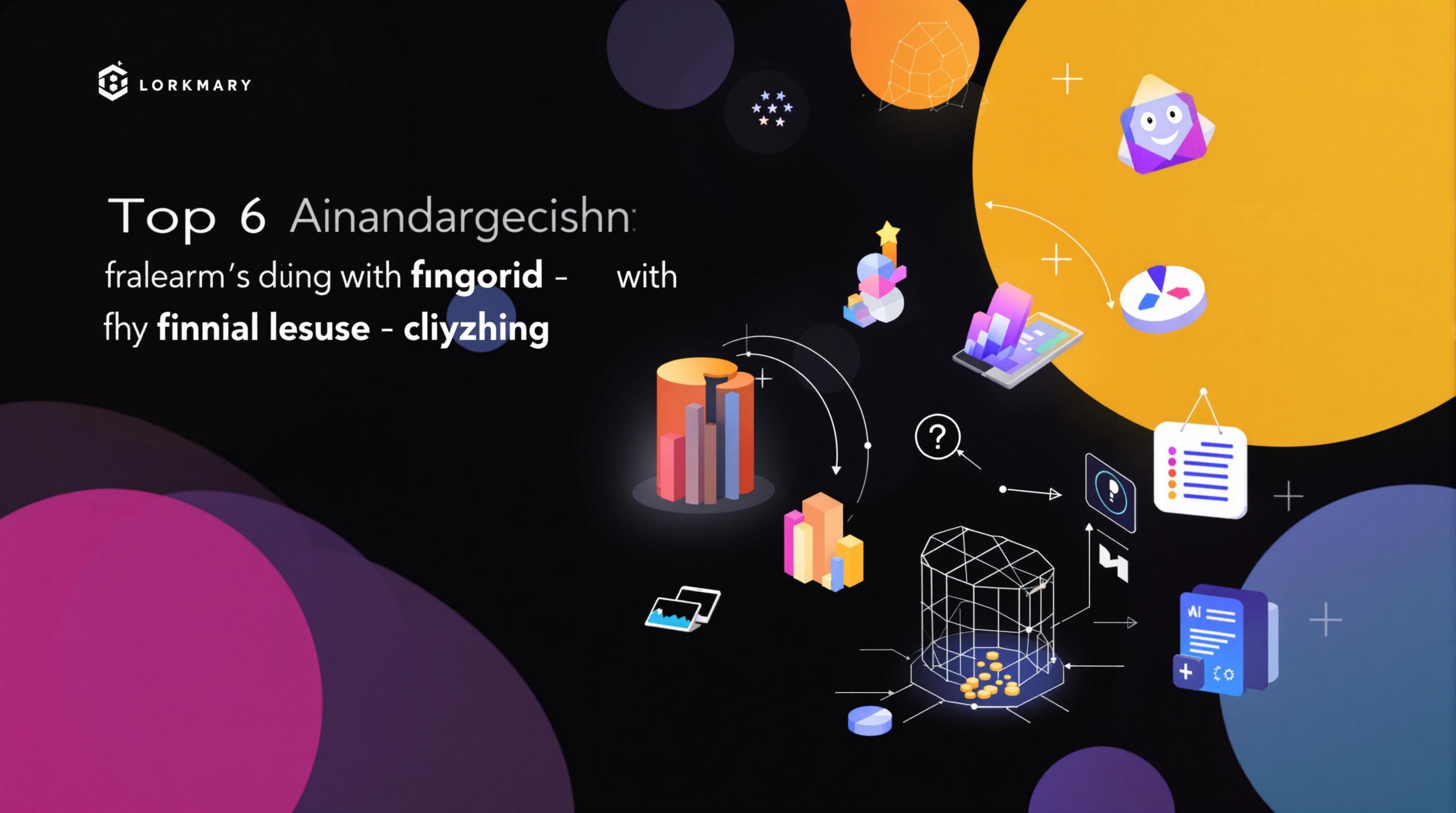Featured Articles
- 9 Revolutionary Finance Data Insights Transforming Market Predictions in the Era of Quantum Computing
- "Cryptocurrency and Climate Change: How Financial Data is Predicting Eco-Friendly Investments"
- "Cryptocurrency Nostalgia: How Past Financial Crises Shape Today's Investing Trends"
- Cryptocurrency Sentiment Analysis: How Twitter Mood Swings are Shaping Market Trends
- "Cryptocurrency Sentiment: How TikTok Trends are Shaping Investor Behavior and Financial Decisions"
9 Revolutionary Finance Data Insights Transforming Market Predictions in the Era of Quantum Computing
9 Revolutionary Finance Data Insights Transforming Market Predictions in the Era of Quantum Computing
9 Revolutionary Finance Data Insights Transforming Market Predictions in the Era of Quantum Computing
1. Quantum-Enhanced Data Processing Speeds
The rise of quantum computing has introduced unprecedented data processing speeds, reshaping financial analysis. Traditional algorithms, limited by classical hardware, often struggle with the vastness and complexity of financial data. Quantum processors, leveraging qubits and superposition, can analyze multiple data points simultaneously, drastically reducing computation times.
This speed enhancement allows investors and analysts to process real-time market information more effectively, enabling faster decision-making. For example, quantum algorithms can optimize portfolio management by rapidly evaluating thousands of asset combinations, leading to improved risk-adjusted returns.
According to a report by McKinsey & Company, quantum computing could accelerate financial modeling tasks by orders of magnitude within the next decade, heralding a new era in market prediction accuracy (McKinsey, 2023).
2. Improved Accuracy Through Quantum Machine Learning
Quantum machine learning (QML) integrates quantum computing with artificial intelligence to enhance predictive models. Unlike classical machine learning, QML exploits quantum phenomena to explore complex patterns in financial data that classical techniques may overlook.
This capability enables the extraction of subtle market signals from noisy datasets, improving prediction reliability. For instance, QML models can better detect shifts in market sentiment or early signs of systemic risk, which are difficult for classical algorithms to identify.
Research published in "Nature" demonstrated quantum-enhanced feature space exploration, significantly boosting model accuracy in financial forecasting scenarios (Havlíček et al., 2019).
3. Advanced Risk Analysis with Quantum Simulations
Quantum simulations allow for the modeling of complex financial systems at unparalleled depth. By simulating various market conditions and economic scenarios, quantum computers provide insights into potential risks with enhanced fidelity.
This facilitates the creation of more robust stress tests and tail risk assessments, vital for managing portfolios under uncertain market dynamics. Financial institutions can thus anticipate and mitigate vulnerabilities before they materialize.
A 2022 IBM study highlighted how quantum simulations could improve Value at Risk (VaR) calculations, a core metric in risk management, leading to more resilient investment strategies (IBM Quantum, 2022).
4. Enhanced Pattern Recognition in Market Movements
Pattern recognition is crucial for identifying trends and anomalies in financial markets. Quantum algorithms excel at processing high-dimensional data, thereby uncovering complex temporal and spatial patterns within price movements.
This enhanced recognition is particularly useful for high-frequency trading, where rapid identification of market shifts can confer a competitive advantage. Quantum techniques can detect micro-patterns invisible to classical algorithms, leading to more informed trading strategies.
Studies from the Quantum Finance Initiative demonstrate that quantum-assisted pattern detection methods reduce false positives and improve the detection rate of significant market events (QFI Report, 2023).
5. Integration of Alternative Data Sources
Quantum computing enables the simultaneous processing of diverse datasets, including non-traditional sources like social media, satellite imagery, and transaction records. This broadens the scope of data analytics in finance.
Leveraging alternative data helps generate more holistic market predictions by incorporating real-world factors that affect asset prices but are often omitted in classical models. Quantum-enhanced analytics process these varied inputs efficiently, providing richer insights.
According to a Deloitte survey, 65% of financial firms plan to increase investment in alternative data analytics, with quantum computing expected to play a key role in managing this complexity (Deloitte, 2024).
6. Quantum-Driven Optimization of Trading Algorithms
The optimization of trading algorithms is a cornerstone of profitable finance operations. Quantum computing offers novel optimization approaches, such as quantum annealing, to fine-tune algorithmic parameters far beyond the reach of classical methods.
This leads to enhanced execution strategies and improved responsiveness to dynamic market conditions. By minimizing latency and maximizing profit margins, quantum-optimized algorithms redefine competitive standards.
Companies like D-Wave Systems have showcased quantum annealers achieving superior optimization results in portfolio allocation and trade execution compared to conventional solvers (D-Wave, 2023).
7. Real-Time Sentiment Analysis with Quantum NLP
Natural Language Processing (NLP) powered by quantum computing facilitates deeper analysis of market sentiment from vast textual sources. Quantum NLP can simultaneously evaluate complex linguistic structures, speeding up sentiment extraction from news, reports, and social media.
Real-time sentiment insights allow traders to anticipate market reactions to geopolitical events or corporate announcements with greater accuracy. This predictive edge is vital in volatile trading environments.
Research from the Quantum AI Lab illustrates how quantum-enhanced NLP models yield more nuanced sentiment classification, surpassing classical benchmarks (QAI Lab, 2023).
8. Enhanced Fraud Detection and Compliance Monitoring
Quantum computing contributes significantly to financial security by improving fraud detection frameworks. Its ability to analyze enormous transaction datasets enables the identification of suspicious patterns that evade classical systems.
Such advancements assist regulatory compliance and protect against financial crime by providing stronger anomaly detection and faster investigative processes.
A report by Accenture highlights quantum computing's potential in transforming fraud surveillance by reducing false alarms and accelerating threat identification (Accenture, 2024).
9. Democratization of Advanced Financial Insights
As quantum computing technology matures and becomes more accessible through cloud platforms, smaller financial firms and individual investors gain access to sophisticated analytical tools. This democratization fosters inclusivity in financial markets.
With increased competition and a wider distribution of quantum-powered tools, market predictions become more efficient and transparent, benefiting the ecosystem as a whole. Investors can make decisions based on cutting-edge insights once reserved for large institutions.
Industry analysts estimate that within five years, quantum finance platforms will be integral to retail investment services, leveling the playing field for participants of all scales (Gartner, 2024).




